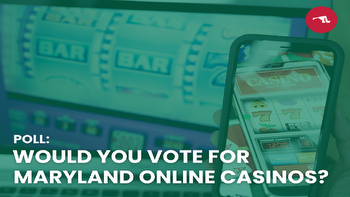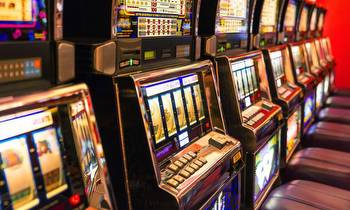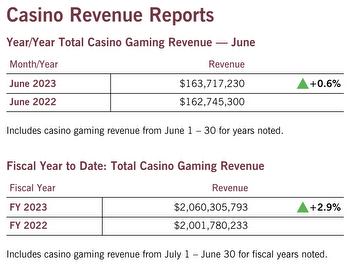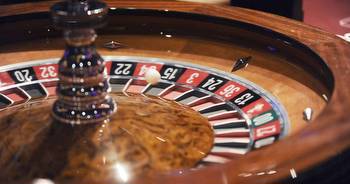Visit a casino from your couch? Here's why Md. should reject iGaming

The Maryland Lottery went live in 1973 with just one game, called Twin Win. Residents of Maryland were told the money generated from the lottery would help fund education. Today, the Maryland Lottery has at least 10 different games and has generated over $19.3 billion in revenue for the state of Maryland.
In 2008, the Maryland General Assembly legalized slot machines to bridge the state’s education funding gap. Such “Slots for Tots” was supposed to solve education funding issues.
This same argument was made when table games and sports betting passed. As we know, with the looming budget deficit due to Maryland’s Blueprint for Education, none of these forms of gaming have been the solution for the state’s continuing education funding challenges, despite their claims.
And now, new type of gaming promises to help fund our schools. Here we go again. Recently introduced Senate Bills 565 and 603, and House Bill 1319 seek to put slot machines and other casino games on everyone’s smartphone, iPad, and computer in our state. Such iGaming will allow 24/7 access to gambling as users can spend countless hours scrolling and spending money they may or may not have from their couches.
Ask yourself this simple question: With almost 40 states having authorized sports betting today, why have only seven states approved casino gambling on phones even though it has been around for over a decade? The answer is simple: 43 states have concluded that iGaming is a lose-lose scenario.
The fact is that iGaming will harm taxes collected by the state. A recent study released in New Jersey, the state with the longest tenure with online casinos, concluded that iGaming was a net negative for the state. The Maryland Lottery commissioned a study that showed an expected 10% loss in gaming revenue from Maryland’s six casinos if iGaming is introduced. According to the American Gaming Association, the casino industry in Maryland contributes over $3.5 billion a year to Maryland’s economy. Using the Lottery’s projections, the negative impact of iGaming on the existing casino industry will significantly reduce, by hundreds of millions of dollars, gaming taxes each year from brick-and-mortar casinos. In addition, thousands of employees in high-paying casino jobs will be lost, most of which are union jobs with significant benefits. The casinos will stop expanding into hotels and entertainment venues, resulting in the loss of substantial property taxes. Finally, the mandatory contributions from the casinos to their local communities and philanthropic institutions will decrease.
And this is all before we consider the social impacts and the ethical costs associated with putting casino gaming on everyone’s smartphone, where you can bet anywhere or anytime with a credit card. Les Bernal, the executive director of Stop Predatory Gambling and the Campaign for Gambling Free Kids described iGaming, saying: “It’s like the most extreme form of [gambling]. It’s opening a casino right in your bedroom so you can sit there in your pajamas and lose everything.” There have been countless reports documenting the impacts of mobile sports betting and iGaming and the alarming rise in addiction, particularly in young people. Just recently, “60 Minutes,” The Wall Street Journal, the Boston Globe and Bloomberg have covered the issue and brought a national spotlight onto this rising epidemic. As these reports document, hundreds of thousands of people jurisdictions with online gambling are struggling with gambling disorders. For each one of those people, another eight to 10 people are hurt, from spouses to children to friends and co-workers.
Morgan State University’s Center for Data Analytics and Sports Gaming Research just released a study that concludes this is a dangerous step and urges our legislature to apply the brakes. Before legislation is passed for another major gambling expansion, they suggest conducting an in-depth study. We already know that the number of people addicted to gaming in Maryland doubled with internet sports betting. As Morgan State’s study concluded: “In light of the data from various states, Maryland is advised to carefully weigh the promised economic benefits of iGaming against the potential for increased problem gambling.”
Marylanders have plenty of opportunities to gamble through the lottery, casinos, sports bars, and sports betting. These iGaming bills are dangerous and will inflict untold human costs and revenue loss for the state of Maryland. While producing a modest amount of revenue for the state, iGaming will have a significant negative impact on Maryland’s residents, workers, and businesses.
Morgan State University offers sound advice and should be a reminder to all of us charged with making policy decisions: Our first order of operation is to “do no harm.”
Del. Ryan Nawrocki (ryan.nawrocki@house.state.md.us) is a Republican representing District 7A in Baltimore County.


























